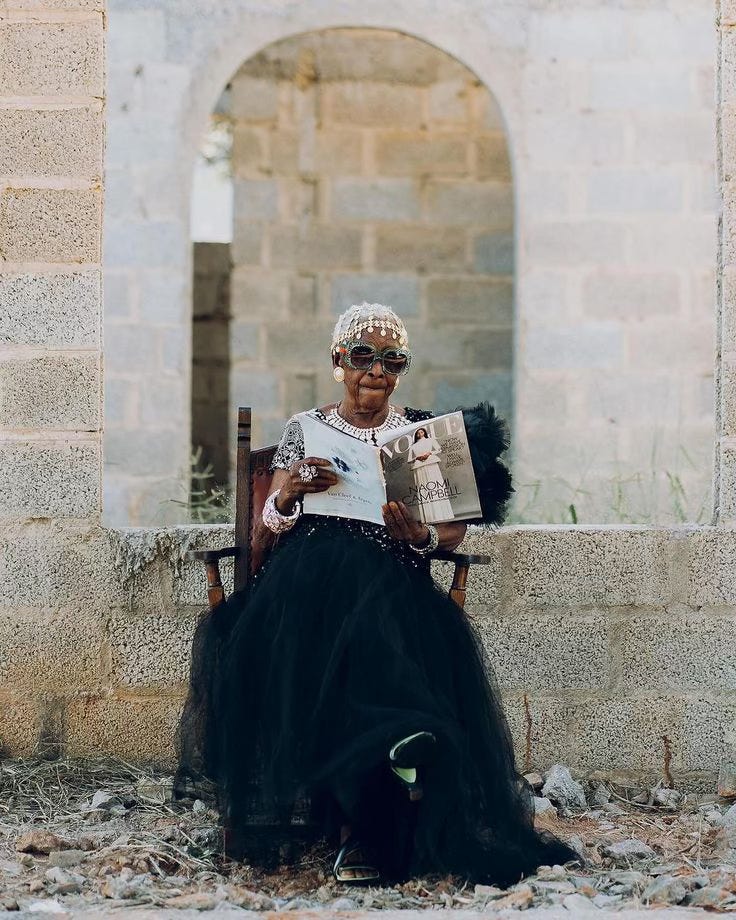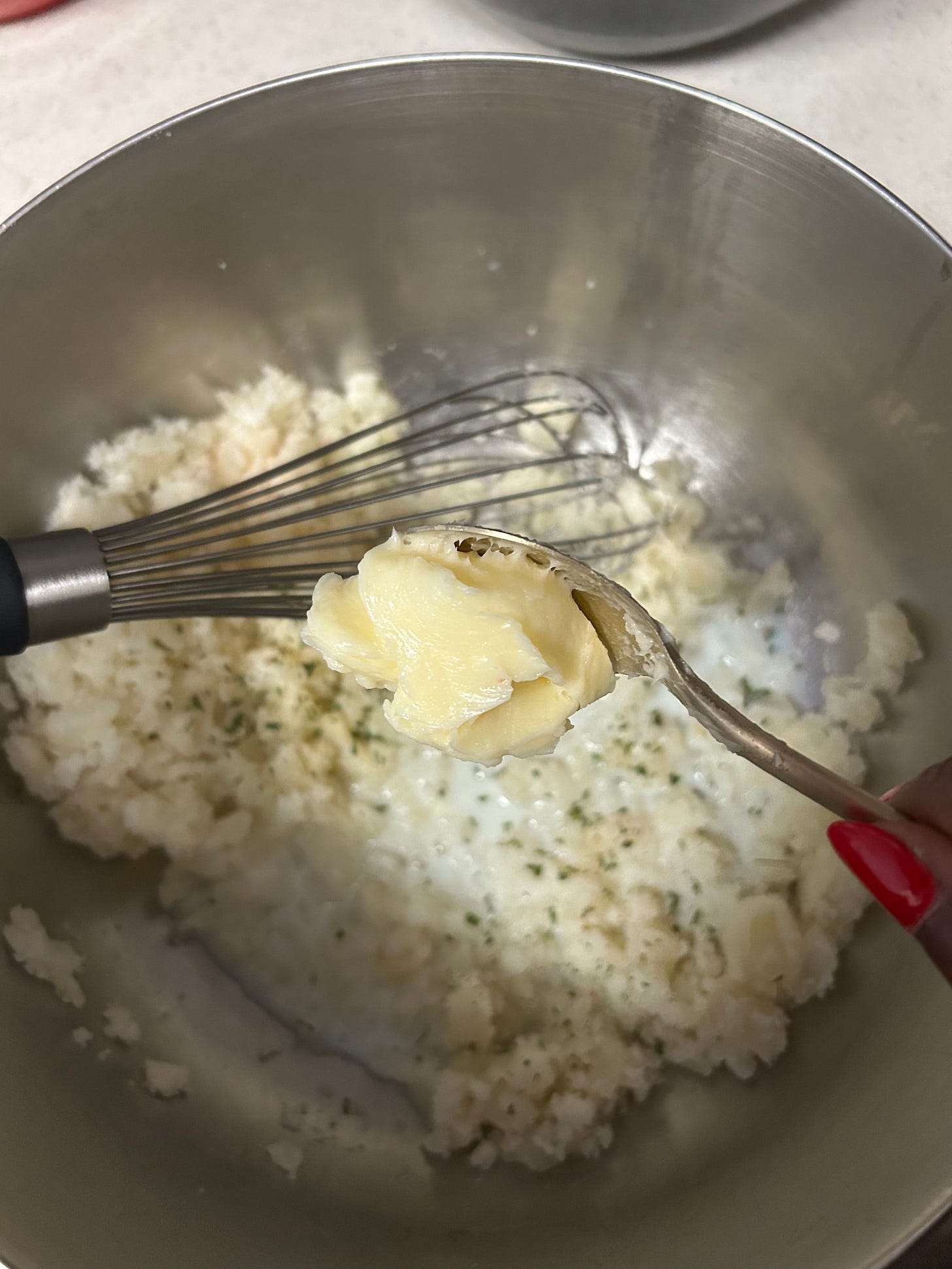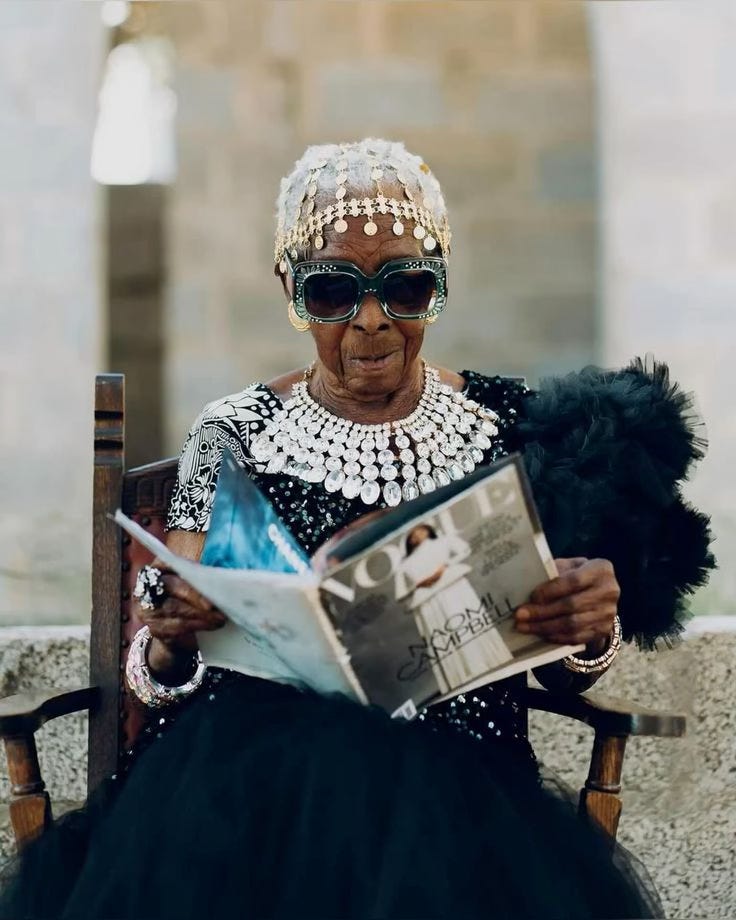Grandma's House Rules
A Blackstack Original: Black Recipes newsletter series install on the one rule at Grandma's house that why we don't say "lie", we say telling stories.

She only had to tell me once, the way she said it so softly yet urgently, but almost whispering it to me. That was a moment I will never forget. One of those moments that felt woven into the fabric of Black culture, a lesson we all learned at some point without knowing the why behind it. As a thinker, it’s hard not to imply the why.
Imagine a reality where a white person could simply say you did something, and before you know it, you have a mob of hotheaded white men in your face, ready to take your head off, literally. Then you say, “No, that wasn’t me”, and they proceed to take your head off because you called that white person a liar. That’s how sensitive this group of people is; that level of sensitivity is dangerous.
Telling stories, instead of calling out the lies, is what kept us alive. We had to develop our own language to communicate truths, because through the truth, a lie will always be revealed.
Buttermilk Mashed Potatoes Recipe

The recipes provided in this series are for the concept of the newsletter. If you make yours different, that’s fine, send me your recipe with a story time if you’d like to share it. Submissions are still open; details in the Breaking Bread section below.
Ingredients:
Potatoes
Whatever kind and however many you got, baby, don’t overthink it.
Buttermilk
Make that Mason Jar Button from the recipe for both butter and the buttermilk. Or just use whatever you got, honey.
Butter
Salt and pepper
You can add a little garlic powder and parsley if you're feeling fancy.
Process:
Peel your potatoes, cut them into quarters, and put them in a cold bath.
Boil water and add a little seasoning to the water.
Add your peeled and cut potatoes to seasoned boiling water.
Once the potatoes are soft, drain the water and add the potatoes to a bowl.
I like to mash my potatoes first with a fork, real old school, but you can use a masher too. Once you make sure you don’t have any potato lumps, go ahead and add your butter, salt and pepper, and buttermilk.
Now, let me share this tip that, shared with me in a Note earlier this week. Warm up that buttermilk before you add it in, she said it’s going to help the potatoes give that texture we are looking for. There are some other tips given in the comments, y’all go check them out.
Whisk the potatoes until they are creamy and the texture is like velvet.
Put your mashed potatoes in a baking dish to go in the oven for about 10-20 minutes at 350.
Don’t quote me on that timing, watch ‘em.
Plate them up with the rest of your meal and enjoy!
Grandma’s Secret Ingredient

Making these mashed potatoes had me thinking about so much in the process, and the moment I had to stop to make some butter, I knew this was the ancestors giving me that spark of inspiration to continue this series. However, there was more to discuss with the butter-making process.
Then it hit me.
It’s about the process.
I had just enough heavy whipping cream to make butter, and that would be just enough buttermilk to make the mashed potatoes. But I had to trust the process. Once the butter was made and the buttermilk was sitting there, I remembered how much I hated the taste the first time I tried, because I was curious based on how much my great-grandmother cooked with it. And after that first taste of those mashed potatoes, I knew that was the secret ingredient I’d been missing, not store-bought either, made from the mason jar butter process.
Butter, buttermilk. Same process. Smooth Like Butter was connected to our writing process. Grandma’s secret ingredient was buttermilk in her mashed potatoes. She fed us the mashed potatoes, not the ingredients. Shaking the butter is how we navigate the emotions, and whisking in the ingredients is our art of storytelling. We feed our communities with our body of work, not our process.
The process is for us. The work of art is for our community.
At Grandma’s house, her rule is that we don’t say lie, we tell stories. Because she knew the process of writing our story was the very thing that could heal us from the lies we have to endure to survive in this country. And she had this rule to protect us, not to dim our light from the world, but she understood the world we were going to be faced with.
She knew how many times they had to turn the other cheek when it came to our own, and the damage that would do later on. She knew the recipes would be lost for a while, but the moment we found ourselves by her side in the kitchen, she knew we would be the ones to tell the stories. When she couldn’t protect us on Earth anymore, she became our ancestor to push the story through our pen and tell the stories she couldn’t tell.
Breaking Bread
This little section includes a few ways to support Blackstack by pledging to the importance of a standalone Black literacy publishing house. Think of it as your turn to whisk in the butter and buttermilk, because we all have a story to tell.
Engaging with the words helps other Black writers find their way home in these Substack streets.
Consider becoming a Paid Subscriber or Zine Club member to help Blackstack be recognized on the platform as a Bestseller, again helping other Black writers find their way home.
Help keep the print press operating through our Collectors’ Memberships: https://www.theblackstack.org
Support our annual print magazine fundraiser: https://www.theblackstack.org/product/blackstack-magazine-issue-one/16?cs=true&cst=custom
Keep Black Recipes newsletter series alive, submit your unpublished work: https://forms.gle/SNUcwbaVmkxqpnXJ7
See y’all on Wednesday for a new Black Reads newsletter!
xoxo,
Jacquie



Love what you're doing. I went through the website and I'm so enthralled by now much you love community and what you're doing is so beautiful.
Hope you don't mind me sending a DM
A rule at my grandma's house (grandma was from South Carolina and we were in Massachusetts) was that you were not permitted to shake your head to indicate yes or no. She called that "goat language." You had to verbally speak your "yes" or "no." ❤️